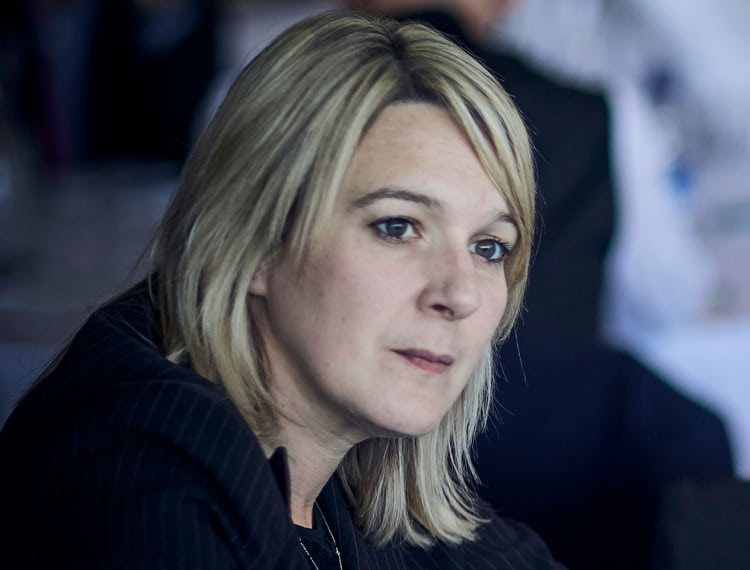#FutureofEducation – Our century-old, rote-learning, exam factory approach to education is no longer not fit for purpose

Not run of the industrial mill
Superficially there is an element of incongruity that many of the buildings which symbolise Britain’s industrial age have assumed a different monumentality as the homes of art in latter years.
The former Bankside power station was transformed into Tate Modern; another Tate occupies warehouses on Liverpool’s old dockside.
Born out of our research and conversations with business, Edge is an advocate for creative and technical subjects as part of a broad and balanced curriculum.
These subjects are repeatedly shown to enable students to develop the problem-solving and team-working skills which our digital economy increasing demands.
If coal fed the Industrial Revolution of three centuries ago, then it is possibly creativity – either high tech or high touch – that is the rocket fuel of the Fourth Industrial Revolution.
Edge’s International Education Summit 2019
So it seemed entirely appropriate that Edge held its first International Education Summit at the BALTIC Centre for Contemporary Arts in Gateshead, formerly the flour mill owned by Rank Hovis McDougall.
The company’s founder, Joseph Rank, was the first to introduce steel rollers to Britain which significantly increased flour production.
For our two-day conference, we brought together 100 educators from three continents in the hope of similar innovation and productivity.
We have so many great pictures from our International Education Summit!? We will keep sharing some of our favourites. The feedback so far has been incredible, and we thank all of our guests for making the summit fun, engaging and inspiring for all.? pic.twitter.com/MePwtGzzJr
— The Edge Foundation (@ukEdge) July 5, 2019
The #FutureofEducation
Our theme was the future of education and what it could and should look like.
There is a growing consensus amongst educators and employers in the UK, that our century-old, rote-learning, exam factory approach is no longer fit for purpose.
We were delighted to welcome delegates, colleagues and friends from some pioneering schools and colleges to share their innovative approaches:
- The Buck Institute
- P-Tech
- Ford Next Generation Learning
- XP School, and
- School 21
… to name a few.
Sharing ideas, best practice and methodology
A speed-dating format in the morning introduced everyone to everyone else and immediately set the tone; this international summit was about sharing ideas, best practice and sometimes practical advice and methodology.
Then we asked everyone to suggest a critical question about education to shape the agenda for the afternoon:
- ‘How do teachers learn to plan and conduct good PBL projects?’
- ‘What is social capital and how do you get it?’
- ‘What is learning?’
- ‘What is worth learning?’
… challenging questions which rightly generated a lot of thought-provoking and exigent conversation.
Next phase of our North East pilot
We are now moving into the next phase of our pilot in the North East of England.
We wanted to introduce our delegation to the two schools and the college that have joined us on the journey, give them a flavour of the challenges facing teachers here and to facilitate a dialogue between the two.
So in proper school-trip style, we herded our delegates onto buses and took them to four local schools and an FE college who all gave us a warm welcome.
The feedback from delegates has been incredibly positive and an affirmation for me that Edge is on the right track. All the evidence shows significant and unsustainable skills shortages, which will not only widen, but change as technology progresses.
Increasingly employers and HE providers are joining teachers and parents in speaking out on the deficiencies of a narrow curriculum which fails to accommodate or value creative and technical subjects, gives no real-world context to learning or investment in careers information, advice and guidance.
Our principles for deeper learning
Our latest report published alongside the Edge International Summit, Our principles for deeper learning, not only identifies the problems, but proffers solutions based on three key principles
- Making learning relevant to real life for students
- Helping them develop transferable skills so they are prepared not just for today’s workplace, but for the jobs which don’t yet exist
- Involving local employers and the community
Through Edge Future Learning, we are bringing together the best practitioners and the most innovative approaches to support educators across the country to give all young people the life chances they deserve and the opportunity to fulfil their potential.
In the foreword of Our principles for deeper learning, Edge’s Chair, Neil Bates, writes,
“The answers to today’s global issues – climate change, sustainability, social equity, globalisation, air pollution – can’t just be looked up in a text book.”
We may have come a long way from using steel rollers in flour production, but the need for the ingenuity, foresight and ambition of Joseph Rank is probably more germane than ever.
Alice Barnard, Chief Executive of Edge












Responses